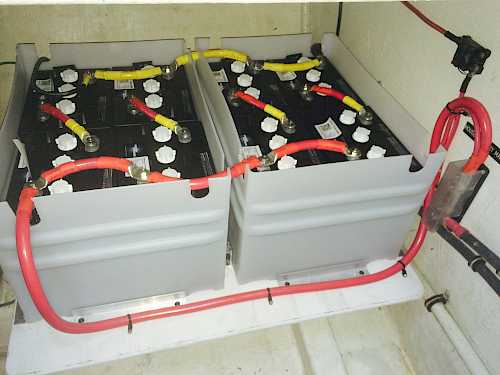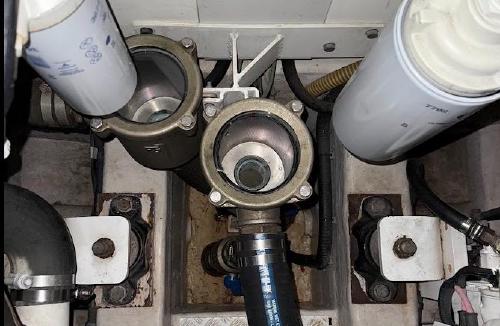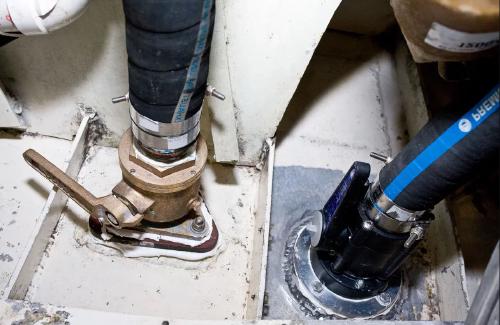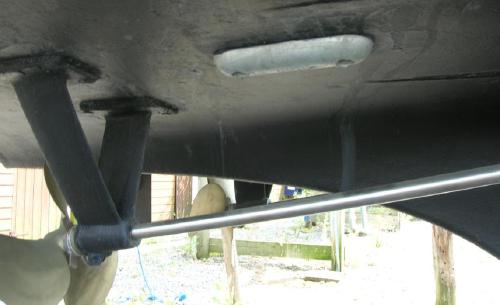Image: Pacific Yacht Systems
When it comes to selecting a battery for your boat, there are several options available, each with its own set of advantages and disadvantages. Wet, gel, and lithium batteries are the three most common types used in marine applications. Understanding the differences between them can help you make an informed decision and ensure you choose the best battery for your boating needs.
Wet Batteries
Wet batteries, also known as flooded batteries, are the most traditional and widely used type of battery in marine applications. They consist of lead plates submerged in a liquid electrolyte solution, typically sulfuric acid. The liquid electrolyte allows for easy maintenance, as the battery can be topped up with distilled water to replace lost fluids.
Pros:
- Lower upfront cost compared to gel and lithium batteries
- Easy maintenance and repair
- Wide availability and established manufacturing infrastructure
Cons:
- Requires regular maintenance to check electrolyte levels and top up with distilled water
- Spills and leaks can occur if the battery is damaged or tipped over
- Less durable and prone to corrosion
- Heavier and larger in size compared to gel and lithium batteries
Gel Batteries
Gel batteries, also known as sealed or maintenance-free batteries, use a gel-like electrolyte instead of a liquid solution. This design eliminates the need for maintenance and reduces the risk of spills and leaks.
Pros:
- Maintenance-free, eliminating the need for regular checks and top-ups
- Less prone to corrosion and damage
- Smaller and lighter in size compared to wet batteries
- Better suited for deep cycle applications
Cons:
- Higher upfront cost compared to wet batteries
- Limited availability and manufacturing infrastructure
- More sensitive to charging and discharging rates
- Can be prone to overheating
Lithium Batteries
Lithium batteries, specifically lithium-ion (Li-ion) batteries, are the newest and most advanced type of battery used in marine applications. They use lithium ions to store energy and offer superior performance and longevity.
Pros:
- Longest lifespan and most durable compared to wet and gel batteries
- High energy density and lightweight design
- Fast charging and discharging rates
- Low self-discharge rate, making them ideal for seasonal use
Cons:
- Highest upfront cost compared to wet and gel batteries
- Limited availability and manufacturing infrastructure
- Requires specialized charging and monitoring systems
- Can be prone to overheating and thermal runaway
Comparison and Considerations
When choosing between wet, gel, and lithium batteries for your boat, consider the following factors:
- Budget: Wet batteries are the most affordable option, while lithium batteries are the most expensive.
- Maintenance: Wet batteries require regular maintenance, while gel and lithium batteries are maintenance-free.
- Performance: Lithium batteries offer superior performance and longevity, while wet and gel batteries have lower energy density.
- Size and weight: Lithium batteries are the smallest and lightest option, making them ideal for smaller boats or those with limited storage space.
- Charging and discharging: Lithium batteries require specialized charging and monitoring systems, while wet and gel batteries can use standard charging systems.
Conclusion
the choice between wet, gel, and lithium batteries for your boat depends on your specific needs and priorities. Wet batteries offer affordability and easy maintenance, while gel batteries provide maintenance-free operation and improved durability. Lithium batteries offer superior performance, longevity, and energy density, but come at a higher cost and require specialized systems. By understanding the differences and pros and cons of each type, you can make an informed decision and choose the best battery for your boating needs.




Use the share button below if you liked it.